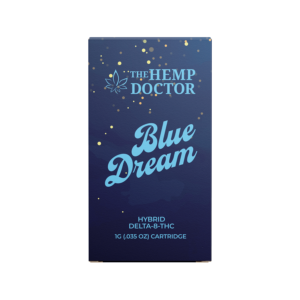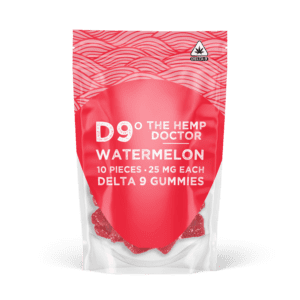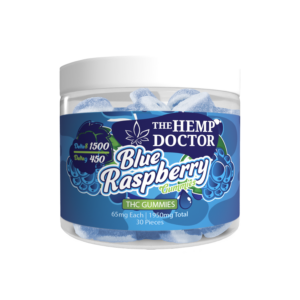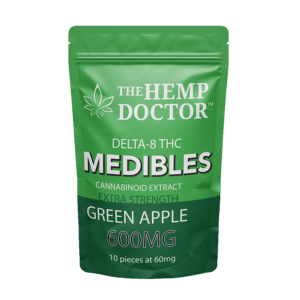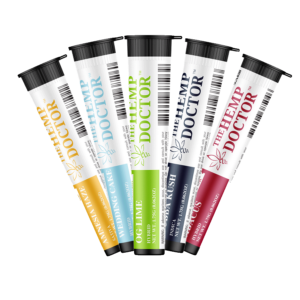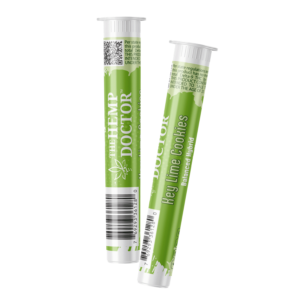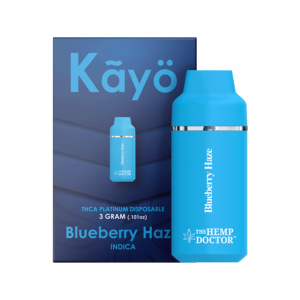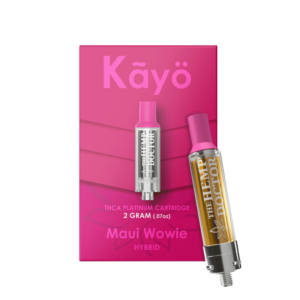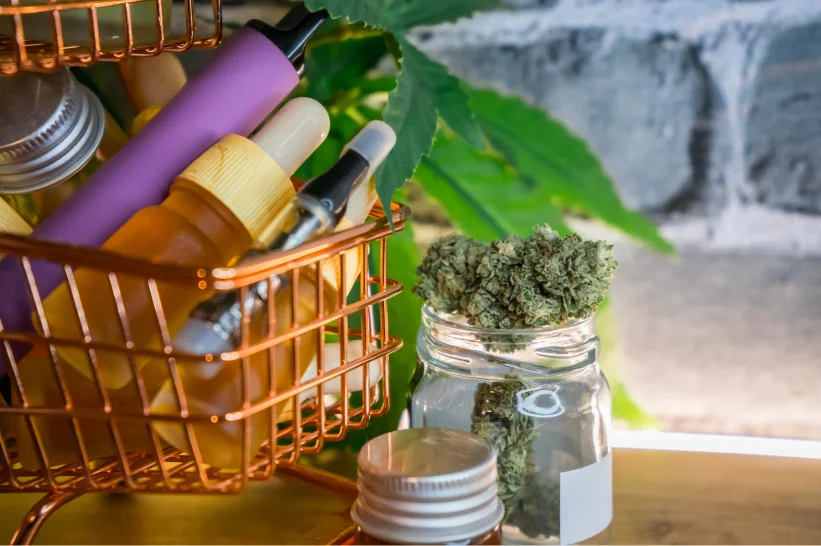
HHC, or “hexahydrocannabinol,” is a naturally occurring psychoactive compound found in trace amounts in cannabis plants. To be mass-produced at a lower cost, the HHC found in the market today is made in the lab using CBD taken from hemp. Hence, the tag name—semisynthetic.
The rise of HHC in 2022 raises the question: Is HHC safe? A study published in 2022 found no concerns regarding HHC effects on cardiac safety and doesn’t demonstrate mutagenic (cancer-inducing) potential. However, the quest to unpack the truth doesn’t end with a single scientific paper.
Let’s dive into the details and separate the facts from the myths.
🔑 Key Takeaways
- Compared to well-researched CBD and THC, HHC has scarce scientific documents in its name. Hence, always be cautious around it, especially if you’re taking a prescriptive drug that might interact with it.
- According to anecdotal reports, HHC has a gentle high and is generally well-tolerated. Small-scale studies agree with this report, as a 2022 study upholds HHC safety in cardiac safety issues.
- HHC is famously vaped. While HHC itself is generally tolerated, harmful byproducts like ketenes can form during vaping.
How Safe Is HHC?
HHC has emerged as a cannabinoid, exuding an almost similar set of effects to that of THC or “Delta-9-tetrahydrocannabinol.” However, its safety remains a significant concern for many potential users, as it has been preceded by several HHC product seizures in Italy, Poland, and Germany.
Drawing parallels to THC, HHC offers a gentler psychoactive experience and is known to provide feelings of euphoria and relaxation. Considering its structural similarities to THC, HHC has been the subject of recent scientific interest, though research is still in its infancy. This leaves a gap in our complete understanding of its safety profile.
| 👀 Look Here Small-scale studies have provided encouraging reports about HHC’s safety. For instance, a 2022 in vitro study found HHC to pose no significant cardiac safety risks and hinted at its potential use in treating specific cancer forms. |
Yet, it’s important to recognize that these findings are often preliminary and don’t comprehensively address the long-term effects of HHC consumption. As such, users should approach HHC with an awareness of ongoing research gaps and maintain caution until more conclusive studies are available.
From a legal standpoint, HHC occupies a gray area in the regulatory landscape. In the United States, it is considered federally legal under the 2018 Farm Bill, provided it is hemp-derived with less than 0.3% THC by dry weight.
However, Individual states can and do impose restrictions on compounds like HHC. Therefore, users need to remain vigilant regarding the legality of HHC in their specific locales to sidestep potential compliance issues.
What Are the HHC Side Effects?
Side effects associated with HHC are often compared with those of THC, owing to their chemical resemblance. Anecdotal evidence suggests that users might experience the following side effects, especially at higher doses:
- Dry mouth
- Increased heart rate
- Mild anxiety
Most of these side effects are temporary and tend to dissipate once the body metabolizes HHC. Adhering to a sensible dosage is crucial to minimize the risks and enhance a positive experience.
Some users have reported experiencing heightened creativity and enhanced relaxation, showcasing the potential benefits of HHC. Yet, the variability in individual tolerance levels means that a dose ideal for one person can be overwhelming for another.
New users are encouraged to start with small amounts to gauge how their bodies respond before increasing their intake.
Further complicating the side effect profile is the inconsistency in product quality due to the evolving cannabis industry for HHC.
As a best practice, consumers should opt for products from brands that prioritize transparency and conduct rigorous third-party testing. This ensures the absence of contaminants and verifies the product’s cannabinoid content, thus safeguarding users from potential adverse effects tied to low-quality formulations.
Emerging Clinical Studies on the Safety of HHC
Research conducted at various levels continues to investigate HHC’s biochemistry and pharmacology to establish its long-term effects on human health. As these studies progress, they are expected to shed light on whether HHC can serve as a reliable and safe alternative to more established cannabinoids like THC and CBD.
So far, three milestone studies have looked into HHC’s safety profile at a molecular level:
| Study Title | Nonclinical In Vitro Safety Assessment Summary of Hemp Derived (R/S)-Hexahydrocannabinol ((R/S)-HHC) |
| Year Published | 2022 |
| Authors | Arianna Collins, Tesfay Tesfatsion, Giovanni Ramirez, Kyle Ray, and Westley Cruces |
| Summary | The study found HHC derived from Colorado Chromatography Labs to be non-mutagenic and has no potential to harm cardiac safety. |
About The Study:
Using Colorado Chromatography Labs’ HHC as the subject, the nonclinical study found non-mutagenic potential in the compound. HHC was found to give a slight toxicity effect on lung fibroblasts, hinting at a possible anti-tumor activity.
Additionally, preclinical assessments show HHC to not offer any cardiac safety issues. The compound was also found to be not damaging to liver cells. The study concluded that HHC, synthesized in labs under strict protocols, is safe to consume.
| Study Title | Studies Pertaining to the Emerging Cannabinoid Hexahydrocannabinol (HHC) |
| Year Published | 2023 |
| Authors | Daniel J. Nasrallah and Neil K. Garg |
| Summary | A safer and more beneficial way of synthesizing HHC has been discovered. |
About The Study:
HHC products available today typically contain a mixture of two different isomers or versions of the HHC molecule. One of these two isomers binds more actively to the same cannabinoid receptors, and THC binds to them similarly.
The authors who published their findings in ACS Chemical Biology, developed a safer way of synthesizing HHC, phasing out the traditional method. The chemical process called hydrogen atom transfer can produce 10 times more of the biologically active isomer.
| Study Title | A Survey Study of Individuals Using Hexahydrocannabinol Cannabis Products: Use Patterns and Perceived Effects |
| Year Published | 2023 |
| Authors | Morgan L Ferretti 1, Riley Gournay, Mia G Bingaman, and Ellen W Leen-Feldner |
| Summary | A survey of 102 HHC users found the compound to yield good effects more than bad. |
About The Study:
The study’s purpose was to gather data about the usage patterns and effects of HHC on 109 real-life individuals over a six-month span. Using a questionnaire-type set-up, the survey’s findings suggest that HHC users are “frequently” using the compound to battle anxiety and pain. However, it’s important to note that HHC hasn’t been endorsed by any government or health agencies as a treatment for any medical conditions.
Overall, users reported HHC to have more good effects than bad, highlighting the relaxation and euphoria individuals get from it.
17% of the subjects reported some adverse effects from using HHC, while 20% who stopped abruptly developed withdrawal symptoms.
HHC Interaction with Drugs

In the medical community, any drug-to-drug interaction is not the most ideal. This kind of interaction could either increase the bioavailability of either drug or decrease each other’s efficacy. Hence, there is always effort on the part of your medical providers to avoid drug interactions.
One pressing concern with new cannabinoids like HHC is their potential interactions with other medications. As a relatively novel compound, comprehensive studies examining HHC’s effects on drug metabolism and interactions are still scarce. So, let’s base our data on medical cannabis instead.
A 2024 study published in Clinical and Translational Science found that 20 drug classes directly interact with medicinal cannabis, particularly benzodiazepines and warfarin. While the study primarily examined overall drug-to-drug interactions involving cannabis compounds, it is the most relevant research regarding the potential effects of HHC when taken alongside prescribed medications.
Therefore, individuals are advised to approach HHC cautiously, emphasizing a thorough understanding of its interactions with concurrent medications to avoid unintended consequences.
Consult with your healthcare professionals before integrating HHC into one’s regimen, especially for individuals on prescription medications or those with underlying health conditions.
Is HHC Flower Safe?

HHC naturally occurs in cannabis plants, but it’s so low in content that it doesn’t make sense for hemp companies to offer HHC in flower form. Nowadays, HHC is popularly vaped in vaporizing devices filled with HHC extracts.
For brands offering HHC in buds or flowers, these flowers are dipped or sprayed with HHC extract. Others use a patented technology called the solventless cold infusion method.
Determining whether HHC flowers are safe is a complex question. In general, smoking or vaping any foreign substances is considered risky for the respiratory system. Also, not all dispensaries and cannabis brands are 100% transparent about what they put into their formulations. All in all, there is a significant risk in smoking HHC flowers.
When purchasing HHC flowers, it’s important to check the manufacturing method and source. This means carefully scrutinizing the product’s origins, transparency in labeling, and the use of third-party lab testing. Brands usually post this information on their websites with links to COAs or Certificates of Analysis per product batch.
Is HHC Safe to Smoke?

In 2019, reports of an outbreak of e-cigarette vaping associated acute lung injury have been recorded by several US health officials. Most of these products contain vitamin E acetate (VEA) with any of the following active ingredients:
- Nicotine
- THC
- Synthetic cannabinoids
It has been suggested that ketene, a compound generated after heating VEA, is the cause of the reported cases of serious lung injuries. Interestingly, some of the ketene-producing substances are reported also to be cannabinoid acetates.
Ketene formation has been noted in chemically pure acetates CBNO, Δ8-THC-O, and the diacetate of CBD present in commercially available vape pen cartridges. Thus, some HHC vapes can produce harmful ketene when heated.
The safety of smoking HHC is widely debated, with potential health implications mirroring those found in smoking traditional cannabis.
The main concern with smoking HHC is the production of harmful byproducts like ketene, tar, and carbon monoxide, which can adversely affect lung health over time. While some users report a satisfying experience from smoking HHC, it is vital to balance enjoyment with an understanding of these risks.
Many people prefer HHC gummies as an alternative to smoking due to their reduced respiratory impact. Ultimately, the safety of HHC largely depends on personal choice and awareness.
Is HHC Safe to Vape?
Vaping HHC offers another mode of consumption, but how safe is it? Despite the reduction in harmful combustion byproducts, vaping still presents certain risks, particularly when product quality assurance is lacking.
Certificates of Analysis (COAs) and other third-party testing ensure the product is contaminant-free and contains the advertised cannabinoid profile. Evaluating these factors is critical to minimize potential health risks associated with vaping.
The choice to vape HHC should be informed by understanding both the benefits, such as faster onset of effects, and the pitfalls, like unknown long-term homeostasis implications.
The prevalence of vaping underscores the need for adherence to quality standards, making it imperative for users to prefer products from reputable sources while also vaping in moderation.
Is it Safe to Use HHC With a Looming Drug Test?
Among the many questions surrounding HHC, one frequent query is whether it will affect drug testing. The truth is, HHC is more likely than not to make your drug test positive. This phenomenon is attributed to two reasons: HHC and THC are molecularly similar, and some HHC products contain THC.
HHC and THC have similar molecular structures, which can lead to their metabolites being confused during testing. Also, if you do not carefully check the Certificates of Analysis (COAs) and the ingredients of the HHC products you are using, you could fail a drug test because of the presence of THC in your system.
Early user reports and anecdotal evidence suggest that HHC could produce a positive result, albeit inconclusively, until more definitive testing practices evolve. For users facing imminent drug tests, the safest course of action is to abstain from any cannabinoid products, including HHC.
Is HHC-P Safe?
HHC-P is a minor cannabinoid created by converting THCP. Its effects are similar to, if not more intense than, THC, and its chemical structure closely resembles that of HHC. As another entrant in the cannabinoid arena, HHC-P has no substantive research for its pharmacological activity on the human body. So, there is no way to verify its safety.
Anecdotal reports say otherwise. HHC-P is said to be generally well tolerated in low to moderate doses. People who took HHC-P in high doses reported side effects of the following kinds:
- Anxiety
- Difficulty with coordination
- Dry mouth
- Increased heart rate
- Red eyes
- Slower reaction times
- Fatigue
Exercise caution when using HHC-P; aside from its measly documentation, it is not a regulated product. This means that most brands offering HHC-P are not obligated to adhere to the country’s legal safety standards.
Consult healthcare professionals before adding HHC-P to your routine to understand any personal health implications better.
Is HHC-O Safe?
HHC-O is yet another HHC-derived variation warranting caution. Its safety and effects are underexplored and require extensive research. The lack of comprehensive data on HHC-O makes it less predictable, and users should exercise prudence when considering its use, as they would with any new cannabinoid.
Until more is known about its impact on health, users are advised to consume HHC-O with the same care applied to HHC and HHC-P. Seeking expert medical advice could provide insights into personalized precautions, ensuring safer consumption experiences.
Comparing the Safety Status of HHC Compared to CBD, THC, and Delta 8
When comparing new cannabinoids like HHC to established substances such as CBD, THC, and Delta 8, distinct differences and similarities arise.
CBD is widely renowned for its non-psychoactive nature and broad safety profile, in contrast to THC’s potent psychoactive effects. HHC, however, is often considered less intoxicating than Delta 9 THC, bearing a moderate resemblance to Delta 8, known for its mild relaxation properties.
While safe consumption practices for HHC reflect those seen with CBD and THC, the relatively nascent HHC market is more prone to inconsistencies in product quality.
The comprehensiveness of CBD and THC research provides established guidelines often absent or still forming in the case of lesser-known cannabinoids like HHC.
How to Safely Consume HHC?
Safe consumption of HHC revolves around a few core principles.
1. Start with a low dose.
New users should start with a low dose and incrementally adjust. This gradual approach allows individuals to evaluate their personal tolerance levels and adapt their consumption accordingly.
2. Buy HHC products keeping “high quality” in mind.
Product selection should also focus on quality assurance and evaluating brands with transparent manufacturing practices that rely on third-party testing.
3. Provide a safe space during HHC consumption.
Ergonomically, consumers need to assess their environment for safe use, avoiding potentially hazardous activities such as driving or operating heavy machinery.
4. Avoid mixing HHC with similar psychoactive substances and drugs.
A mindful attitude when consuming HHC extends to recognizing the potential interactions with other substances. Users should refrain from mixing HHC with alcohol or other drugs to mitigate intensified effects and unforeseen consequences.
Final Thoughts
As a member of the cannabinoid family, HHC requires thorough investigation to reveal its true spectrum of effects and safe dosages. Until more extensive research supports the ongoing positive anecdotal reports, users should always proceed with careful consideration around lesser-known cannabinoids like HHC. Robust, well-regulated products from reputable brands ensure consumers have access to quality-consistent options. The Hemp Doctor Wholesale guarantees that through our high-quality and competitively priced HHC wholesale products.
FAQs
Is HHC harmful?
Like any cannabinoid, HHC’s potential harmful effects are tied to dosage, product quality, and individual reactions. Consuming HHC responsibly within known limits is essential to minimizing adverse effects.
Does HHC get you very high?
While HHC provides psychoactive effects similar to THC, it is generally regarded as less potent, contributing to a milder and potentially more controlled high.
What is HHC supposed to do?
HHC is known for offering relaxation and mild euphoria. Its intended effects vary among consumers based on individual responses and expectations.
How much HHC is safe?
Safe consumption levels can fluctuate considerably depending on tolerance and product formulations. Starting with low doses and consulting product-specific guidelines can guide users towards safer consumption patterns.
